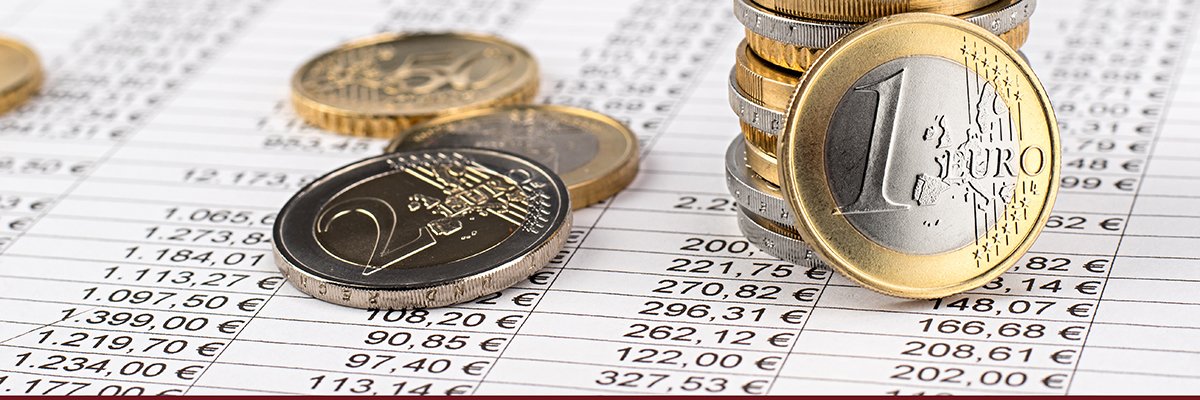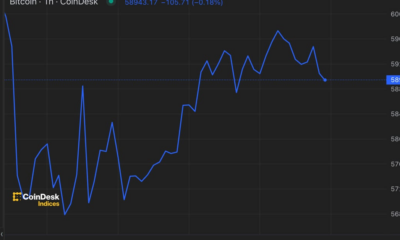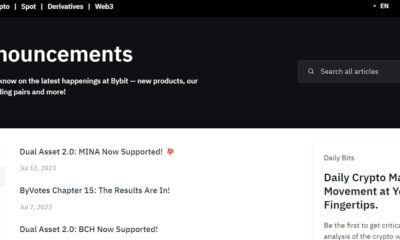News
5 Blockchain Trends to Know for 2024 and Beyond

Blockchain has been heralded as one of the game-changing technologies of the 21st century, poised to disrupt industries and transform the way the world shares money and information.
Fifteen years after its debut with the advent of Bitcointhe blockchain revolution has yet to fully materialize.
Instead, blockchain – like most new technologies – is advancing in fits and starts. Technology is bringing radical changes and enabling new business models in some industries, while faltering in others.
Technology experts, industry analysts, and numerous reports over the past year have predicted much the same thing. But they also point out that there is, in fact, a lot of forward momentum.
What’s on the horizon for 2024 and beyond? Blockchain Projects Will Continue to Advance Decentralized Finance (DeFi), especially cryptocurrency, where the technology had its great success and continues to shine. But blockchain progress is also expected in other sectors. Major trends include the following.
1. Growth of DeFi
According to analysts and industry research, interest and investment in blockchain remains strongest in the financial sector.
“We have definitely seen cryptocurrency emerge as the killer app for blockchain,” said Avivah Litan, an analyst at Gartner.
But Litan said it’s not just the cryptocurrency market, which has emerged since the arrival of Bitcoin in 2009, that is using this technology. Established financial institutions also use it, considering it a key component to modernize their infrastructure.
“They are using blockchain for more transparent movement of assets and fractionation of assets,” Litan said, adding that blockchain is a great technology for both real-time tracking and settlement.
“Global Blockchain in Banking and Financial Services Market Report 2023” by ReportLinker detailed the increase in investments, calculating that the global blockchain banking and financial services market grew from $1.89 billion in 2022 to $3.07 billion in 2023. The report sized the market based on the revenues obtained from entities offering both public and private blockchains and other blockchain services in banking and financial services.
These numbers indicate what lies ahead, said Lata Varghese, managing director and leader of the digital assets and blockchain practice at consultancy Protiviti. “The future of assets is digital,” she said.
Cryptocurrency setbacks could have a long-term positive impact on other blockchain applications.
2. Fraud and corruption dampen interests
While the financial sector continues to invest in blockchain technology, the sector is also facing increasing scrutiny and skepticism following a wave of negative news over the past two years.
There was the collapse of Terra, an open source blockchain platform in May 2022.
Then came the widely publicized collapse of FTX, at one point the third-largest cryptocurrency exchange, in late 2022. It was followed by the arrest of founder and former CEO Sam Bankman-Fried on various charges, including fraud. In early 2023, cryptocurrency lender Genesis Global Capital declared bankruptcy.
Anecdotal evidence is supported by statistics. The FBI’s “2022 Internet Crime Report” found an increase in cryptocurrency investment fraud from $907 million in 2021 to $2.57 billion in 2022, an increase of 183%. Then in 2023, the FBI reported an increase in cryptocurrency investment scams, companies falsely claiming the ability to recover lost cryptocurrency investments, and fake non-fungible tokens (NFTs) offers that have drained people’s cryptocurrency wallets.
This type of news has an impact, Litan said.
“There is still innovation, but it is stifling adoption,” he added. “It affects the whole industry. People don’t get excited anymore. It just drives them away.”
3. Legal repression
Regulators and lawmakers are reacting in response to crime and disorder.
Evidence in point: the legal actions taken last March by the U.S. Securities and Exchange Commission, which filed charges against cryptocurrency entrepreneur Justin Sun and three of his wholly owned subsidiaries for the unregistered offering and sale of securities of cryptocurrencies. The SEC also accused Sun and his companies of fraudulently manipulating the secondary market for the cryptocurrency token TRON (TRX) and orchestrating a scheme to pay celebrities to advertise TRX and another token, BitTorrent (BTT) without disclosing the their compensation. The SEC also charged eight celebrities with illegally promoting TRX and BTT without disclosing whether they received compensation for doing so and the amount of their compensation.
In February, the SEC accused Payward Ventures Inc. and Payward Trading Ltd. (both known as Kraken) of failing to register the offer and sale of their crypto asset staking-as-a-service program, a consensus mechanism for blockchain. Kraken agreed to pay $30 million to settle the SEC charges.
This came just a month after the SEC accused cryptocurrency platform Nexo Capital of failing to register the offer and sale of its retail cryptocurrency lending product. Nexo agreed to pay $45 million in penalties.
The agency has initiated numerous other actions against unregistered cryptocurrency products for the remainder of 2023. However, in January 2024, it approved the sale of exchange-traded products with spot bitcoin, a new type of investment vehicle that holds bitcoin and can be traded on the stock market. .
The SEC is not the only entity taking action. U.S. lawmakers at both the state and federal levels have proposed or filed legislation aimed not only at the cryptocurrency market but also blockchain as a technology.
Among those actions is a move made in March by U.S. Rep. Tom Emmer, R-Minn. The co-chair of the Congressional Blockchain Caucus introduced the Blockchain Regulatory Certainty Act. The bill, which passed in committee but still needs to be voted on by the full House, seeks to create legal clarity blockchain developers and service providers that do not hold or manage consumer funds, essentially stipulating that they should not be considered money transmitters subject to stringent regulation.
Meanwhile, several US states have blockchain and cryptocurrency-related legislation pending in 2024.
4. Corporate investments in blockchain
Despite all the recent turmoil in the cryptocurrency industry, business executives are still interested in blockchain, industry analysts said.
They explored how blockchain can be used to create more effective, efficient and secure platforms for various business needs, including identity and access management, supply chain management, smart contracts and document management and verification .
However, most organizations are only exploring ideas or experimenting with blockchain for such uses.
“I see people are still interested in this, but we don’t see adoption taking off yet,” said Seth Robinson, vice president of industry research at CompTIA, an IT industry association.
Robinson said executives in most industries, particularly those outside the financial sector, have yet to see any platform built with blockchain that justifies the cost of replacing the systems they already have.
He said he expects it business use of blockchain to accelerate the moment software vendors find ways to use it to dramatically improve their products or to create new products and services that significantly help organizations.
“Vendors will have to demonstrate why the blockchain-based solution is better – and that it is much better – that it is worth eliminating and replacing what [companies] have in place,” he said.
However, there are some areas where business leaders are further along in their experiments or use of blockchain.
Some organizations use blockchain for compliance, particularly in the healthcare industry environmental, social and governanceor to bring more transparency to their supply chains. For example, some use blockchain for provenance to ensure that raw materials come from acceptable regions.
5. NFTs for businesses
While executives may not yet see the value of using blockchain for many business processes, more and more people are embracing it as part of the token-based online economy. Specifically, they are creating new revenue streams by selling digital products and assets via NFTs.
“This is where a lot of the innovation has happened,” Varghese said.
The potential size of the market is staggering. In a 2021 research note, Morgan Stanley estimated this metaverse games and NFTs could represent a $56 billion revenue opportunity by 2030 for the luxury market alone.
Meanwhile, professional services firm Deloitte addressed the potential of NFTs for businesses in its 2022 report, “Companies Using NFTs: How NFTs Could Fit Your Business and What to Look For,” writing that companies are just starting to scratch the surface of the technology.
Deloitte went on to conclude: “The more companies develop and test new use cases, the clearer it seems that NFTs in their many forms – current and future – could fundamentally change the way we engage in and record the transfer of rights and obligations digital”. , a development that could redefine the very nature and boundaries of modern commerce.”
Mary K. Pratt is an award-winning freelance journalist specializing in covering enterprise IT and cybersecurity management.
News
Ether Drops Further After ETF Launch

Key points
- Spot ether ETFs began trading in the U.S. today, with the funds initially having more than $10 billion in collective assets under management.
- Analysts expect the launch of spot ether ETFs to have a net negative impact on the underlying price of ether in the near term, due to expected outflows from the pre-existing Grayscale Ethereum Trust.
- Spot Bitcoin ETFs continue to see strong inflows, with BlackRock’s IBIT alone seeing more than $500 million in inflows on Monday.
- Franklin Templeton, a spot ETF issuer on bitcoin and ether, has invested in a project that intends to bring Ethereum technology to Bitcoin.
Nine-point ether exchange-traded funds (ETFs)) started trading on the stock market on Tuesday, but all the optimism ahead of their approval did not translate into gains for the cryptocurrency markets.
Ether (ETH), the native cryptocurrency of the Ethereum blockchain, dropped less than 1% around the $3,400 level as of 1:30 PM ET, while Bitcoin (BTC) fell more than 2% to around $66,000.
Ether ETFs’ Debut Isn’t as Flashy as Bitcoin ETFs’
Spot ether ETFs began trading at just over $10 billion assets under management (AUM)), according to Bloomberg Intelligence analyst James Seyffart, most of that money is in the current Grayscale Ethereum Trust (ETHE) which has now been converted into an ETF.
“In the long term, Grayscale will simultaneously have the highest and lowest fees in the market. The asset manager’s decision to keep its ETHE fee at 2.5% could lead to outflows from the fund,” Kaiko Research said in a note on Monday.
Outflows from ETHE, if they occur, would be similar to those faced by Grayscale’s Bitcoin Trust (GBTC) after spot bitcoin ETFs began trading in January of this year, most likely due to high fees for the two original funds. Grayscale’s existing fund charges 2.5% fees, while a new “mini” ether ETF will charge 0.15% and commissions for other ETFs are set at 0.25% or less.
Such outflows could impact the price of ether and market sentiment.
“There could be a pullback shortly after the launch of Ethereum spot ETFs, i.e. outflows from Grayscale Ether Trust could dampen market sentiment in the short term,” Jupiter Zheng, a partner at Hashkey Capital’s liquid fund, told The Block.
But Grayscale remains optimistic.
“Compared to the splashy debut of spot bitcoin ETPs in January, the launch of ethereum ETPs has been relatively muted,” said Zach Pandl, Grayscale’s head of research, adding that investors may be “undervaluing” ether ETFs that are “coming to the U.S. market in tandem with a shift in U.S. cryptocurrency policy and the adoption of tokenization by major financial institutions.”
Bitcoin ETF Inflows Continue to Rise
As for bitcoin, there is clearly no lack of demand for spot ETFs, such as BlackRock’s iShares Bitcoin Trust (IBITS) recorded its sixth-largest day of inflows in its short history on Monday, at $526.7 million, according to data from Farside Investors. Daily inflows for the overall spot bitcoin ETF market also hit their highest level since June 5.
In particular, asset manager Franklin Templeton, which has issued both bitcoin and ether ETFs, appears to have decided to cover its back when it comes to Ethereum by investing in Bitlayer, a way to implement Ethereum technology on a second-layer Bitcoin network, according to CoinDesk.
News
Spot Ether ETFs Start Trading Today: Here’s What You Need to Know

Key points
- Spot ether ETFs will begin trading on U.S. exchanges on Tuesday. Nine ETFs will trade on Cboe BZX, Nasdaq and NYSE Arca.
- Ether ETFs offer investors exposure to the price of their underlying assets.
- Commissions on these new ETFs generally range from 0.15% to 0.25%.
- These ETFs do not provide exposure to Ethereum staking.
The U.S. Securities and Exchange Commission (SEC) has officially approved nine ether spots (ETH)exchange-traded funds (ETFs) for trading on U.S. exchanges. Trading for these new cryptocurrency investment vehicles begins today. Here’s everything you need to know.
What new ether ETFs are starting to trade today?
Spot ether ETFs starting trading today can be found at Quotation, NYSE Arkand Cboe BZX. Here’s a breakdown of each ETF you can find on these three exchanges, along with the fund tickers:
Cboe BZX will list the Invesco Galaxy Ethereum ETF (QETH), the 21Shares Core Ethereum ETF (CETH), the Fidelity Ethereum Fund (FETH), the Franklin Ethereum ETF (EZET) and the VanEck Ethereum ETF (ETHV).
Nasdaq will have the iShares Ethereum Trust ETF (ETHA) created by BlackRock, which also operates the largest spot bitcoin ETF under the ticker IBIT.
NYSE Arca will list the Bitwise Ethereum ETF (ETHW) and the Grayscale Ethereum Trust (ETHE). The Grayscale Ethereum Mini Trust (ETH), which will begin trading on the same exchange.
How does an ether ETF work?
Spot ether ETFs are intended to offer exposure to the price of ether held by the funds. Ether is the underlying cryptocurrency of the Ethereal network, the second largest crypto network by market capitalization.
ETF buyers are buying shares of funds that hold ether on behalf of their shareholders. Different spot ether ETFs use different data sources when it comes to setting the price of ether. Grayscale Ethereum Trust, for example, uses the CoinDesk Ether Price Index.
None of the ETFs launching today include pointed etherwhich represents a potential opportunity cost associated with choosing an ETF over other options such as self-custody or a traditional cryptocurrency exchange.
Ether staking currently has an annual return of 3.32%, according to the Compass Staking Yield Reference Index Ethereum. However, it is possible that the SEC will eventually approve Ether staking held by ETFs.
How can I trade Ether ETFs?
ETFs can simplify the trading process for investors. In the case of cryptocurrencies, instead of taking full custody of the ether and taking care of your own private keysSpot ether ETFs allow investors to purchase the cryptocurrency underlying the Ethereum network through traditional brokerage accounts.
Today, not all brokers may offer their clients spot ETFs on cryptocurrencies.
What are the fees for ether ETFs?
The fees associated with each individual spot ether ETF were previously revealed In the S-1 OR S-3 (depending on the specific ETF) deposit associated with the offerings. These fees are 0.25% or less for all but one.
The Grayscale Ethereum Trust, which converts to an ETF, has a fee of 2.5%. The Grayscale Mini Ethereum Trust has the lowest fee at 0.15%. These fees are charged on an annual basis for the provider’s management of the fund and are in line with what was previously seen with spot bitcoin ETFs.
Brokers may also charge their own fees for cryptocurrency trading.
News
Kamala Harris Odds Surge Amid $81M Fundraise. What Does It Mean for Bitcoin and Cryptocurrencies?

Market odds and memecoins related to US Vice President Kamala Harris have soared as the latest round of donations tied to the Democratic campaign raised $81 million in 24 hours, bolstering sentiment among some traders.
The odds of Harris being declared the Democratic nominee have risen further to 90% on cryptocurrency betting app Polymarket, up from 80% on Monday and setting a new high.
Previously, in early July, bettors were only betting on 8%, but that changed on Saturday when incumbent President Joe Biden announced he would no longer run in the November election. Biden then approved Harris as a candidate.
Polymarket traders placed $28.6 million in bets in favor of Harris, the data showsThe second favorite is Michelle Obama.
Somewhere else, Memecoin KAMA based on Solanaa political meme token modeled after Harris, has jumped 62% to set a new all-time high of 2 cents at a market cap of $27 million. The token is up a whopping 4,000% from its June 18 low of $0.00061, buoyed primarily by the possibility of Harris becoming president.
As such, Harris has yet to publicly comment on cryptocurrencies or her strategy for the growing market. On the other hand, Republican candidate Donald Trump has expressed support for the cryptocurrency market and is expected to appear at the Bitcoin 2024 conference on Saturday.
However, some expect Harris or the Democratic Party to mention the sector in the coming weeks, which could impact price action.
“While he has not yet received the official nomination, there is consensus that last night’s development is in line with current Democratic strategy,” cryptocurrency trading firm Wintermute said in a Monday note emailed to CoinDesk. “Keep an eye on Democrats’ comments on this issue in the coming days.
“The prevailing assumption is that Harris will win the nomination and any deviation from this expectation could cause market volatility,” the firm added.
News
Top 30x Cryptocurrency and Coin Presales Today: Artemis Coin at #1, Others Are: BlockDAG, 99Bitcoin, eTukTuk, and WienerAI

The cryptocurrency market has seen a lot of growth and imagination lately, with new ventures popping up regularly. A critical pattern in this space is the rise of crypto pre-sales, which give backers the opportunity to get involved with promising projects early on. Artemis is a standout option for crypto investors looking to expand their portfolios amid the many pre-sales currently underway.
Cryptocurrency presales, commonly referred to as initial coin offerings (ICOs), allow blockchain ventures to raise capital by offering their local tokens to early backers before they become available on open exchanges. Investors can take advantage of these presales by purchasing tokens at a lower price. If the project is successful and the token’s value increases, investors stand to receive significant returns.
>>> Explore the best cryptocurrency pre-sales to buy now <<
The Ultimate List of the Top 5 Cryptocurrency Pre-Sales to Invest In
- Artemis: The aim of Artemis (ARTMS) will become the cryptocurrency equivalent of eBay or Amazon. The upcoming Phase 4 will see the launch of the Artemis Framework, which will serve as a stage for digital money exchanges where buyers, sellers, specialized organizations and those seeking administration can participate in coherent exchanges.
- DAG Block: uses Directed Acyclic Graph technology to increase blockchain scalability.
- 99bitcoin: operates as a crypto learning platform
- WienerAI uses AI-powered trading bots for precise market analysis.
- eTukTuk focuses on environmentally sustainable transportation options, such as electric vehicle charging infrastructure.
We have determined that Artemis is the best new cryptocurrency presale for investment after conducting extensive research. It presents itself as the unrivaled cryptocurrency presale choice currently open.
>> Visit the best cryptocurrency pre-sale to invest in now <<
Top 5 Crypto Pre-Sales and Best Cryptocurrencies for Investment Today
Artemis (ARTMS) is attempting to establish itself as the cryptocurrency version of eBay or Amazon. The Artemis Crypto System, which will act as a platform for cryptocurrency transactions, will be launched in Phase 4. Buyers, sellers, service providers, and requesters will all benefit from seamless trading with this system. Customers will be able to purchase things, such as mobile phones using digital money, as well as sell products such as involved bicycles and get paid in cryptocurrency. Additionally, crypto money can be used to pay for administrations such as clinical consultations, legitimate care, and freelance work. Artemis Coin will act as the main currency of the ecosystem, with Bitcoin and other well-known cryptocurrencies from various blockchain networks backing it.
Artemis Coin has increased in price from 0.00055 to 0.00101 from 0.00094. Artemis may be attractive to individuals looking to recoup losses in Bitcoin, as predicted by cryptocurrency analysts. At this point, it seems to present an interesting presale opportunity.
>>> Visit the best cryptocurrency pre-sale to invest in now <<
The world of digital currency pre-sales is an exciting and exciting opportunity that could open the door to game-changing blockchain projects. Projects in this article, like Artemis Coin, offer the opportunity to shape the future of various industries and the potential for significant returns as the industry develops.
However, it is imperative to approach these investments with caution, thorough research, portfolio diversification, and awareness of the risks. You can explore the digital currency pre-sale scene with greater certainty and increase your chances of identifying and profiting from the most promising venture opportunities by following the advice and methods in this article.
>>> Join the best cryptocurrency pre-sale to invest in now <<
-

 News1 year ago
News1 year agoBitcoin (BTC) price recovery faces test on non-farm payrolls
-

 Bitcoin12 months ago
Bitcoin12 months ago1 Top Cryptocurrency That Could Surge Over 4,300%, According to This Wall Street Firm
-

 Altcoins12 months ago
Altcoins12 months agoOn-chain data confirms whales are preparing for altcoin surge with increased buy orders
-

 Bitcoin12 months ago
Bitcoin12 months agoThe US government may start accumulating Bitcoin, but how and why?
-

 News1 year ago
News1 year agoNew ByBit Listings for 2024: 10 Potential Listings
-

 News1 year ago
News1 year ago11 Best Crypto TikTok Accounts & Influencers in 2024
-

 Altcoins1 year ago
Altcoins1 year agoMarket giants have taken action!
-

 News1 year ago
News1 year ago11 Best Shitcoins to Buy in 2024: The Full List
-

 Ethereum1 year ago
Ethereum1 year agoTop Meme Coins by Market Capitalization in 2024
-

 News1 year ago
News1 year ago1.08 Trillion SHIBs Dumped on Major Crypto Exchange, What’s Going On?
-

 News1 year ago
News1 year ago19 Best Crypto Games to Play in 2024
-

 Altcoins1 year ago
Altcoins1 year agoAltcoin Recommended by Crypto Expert for Today’s Portfolio





